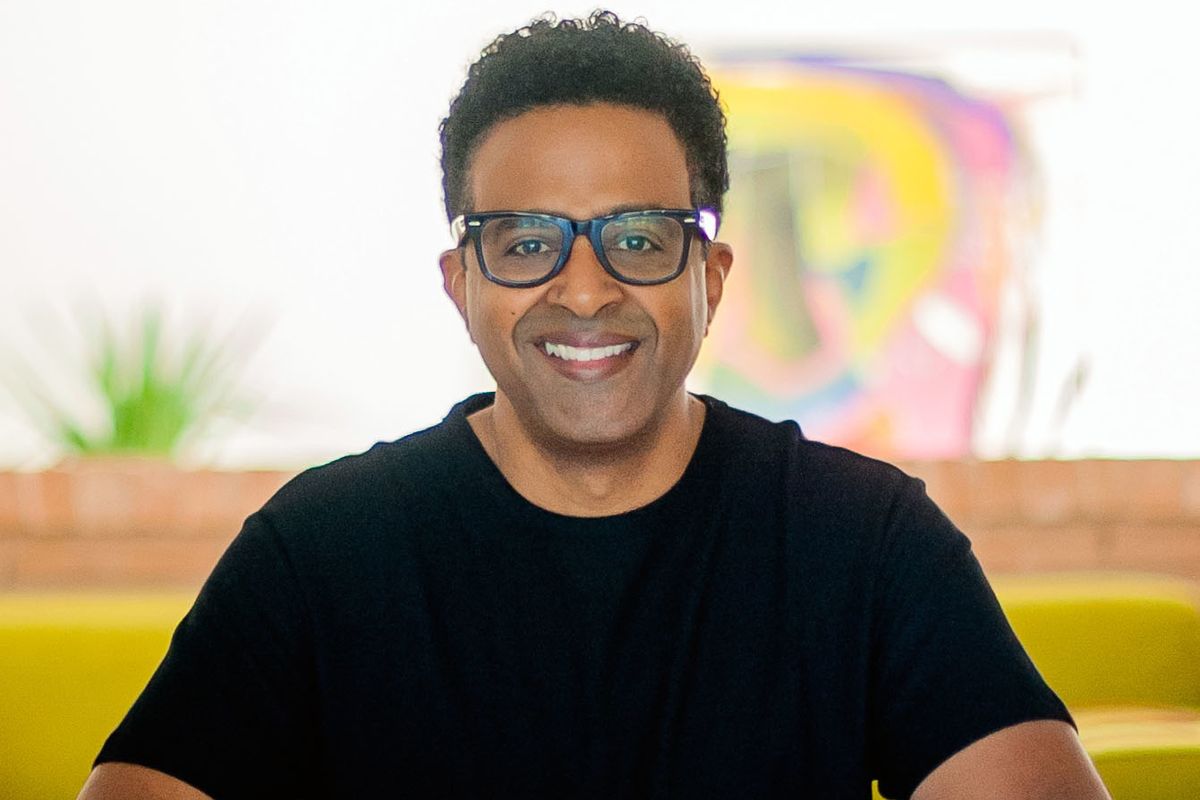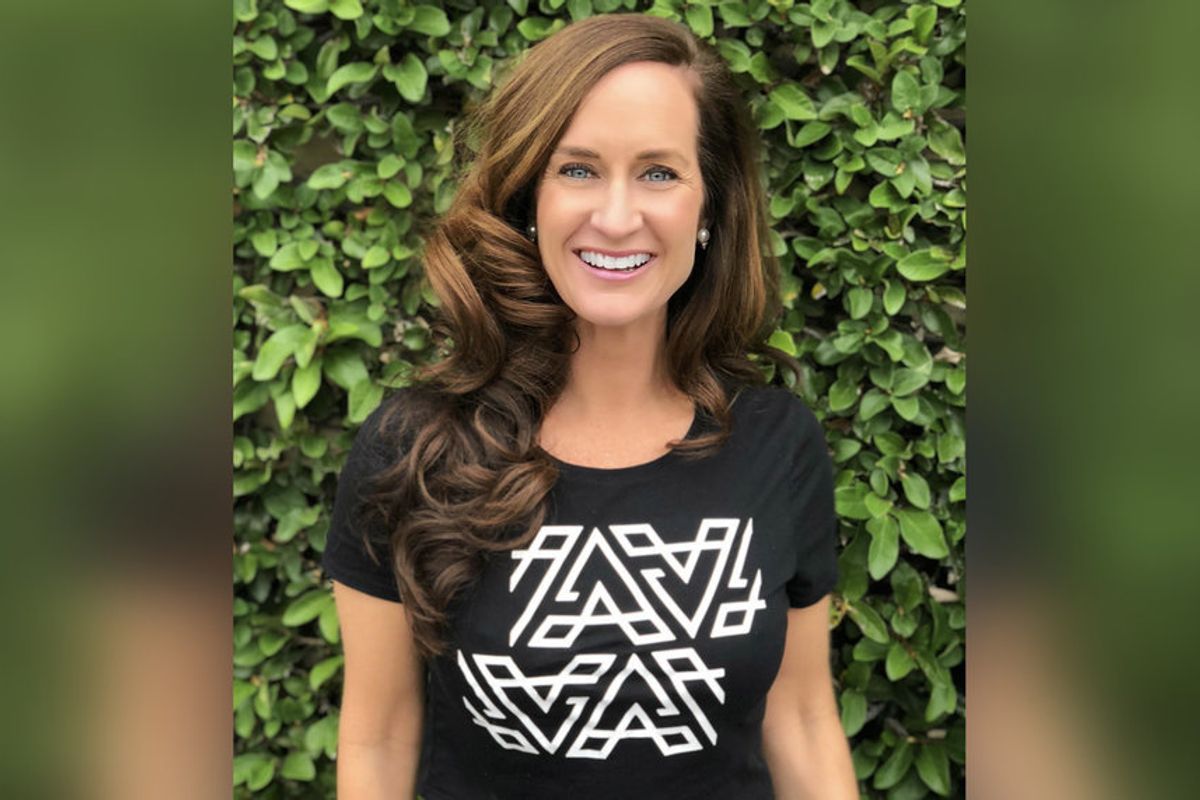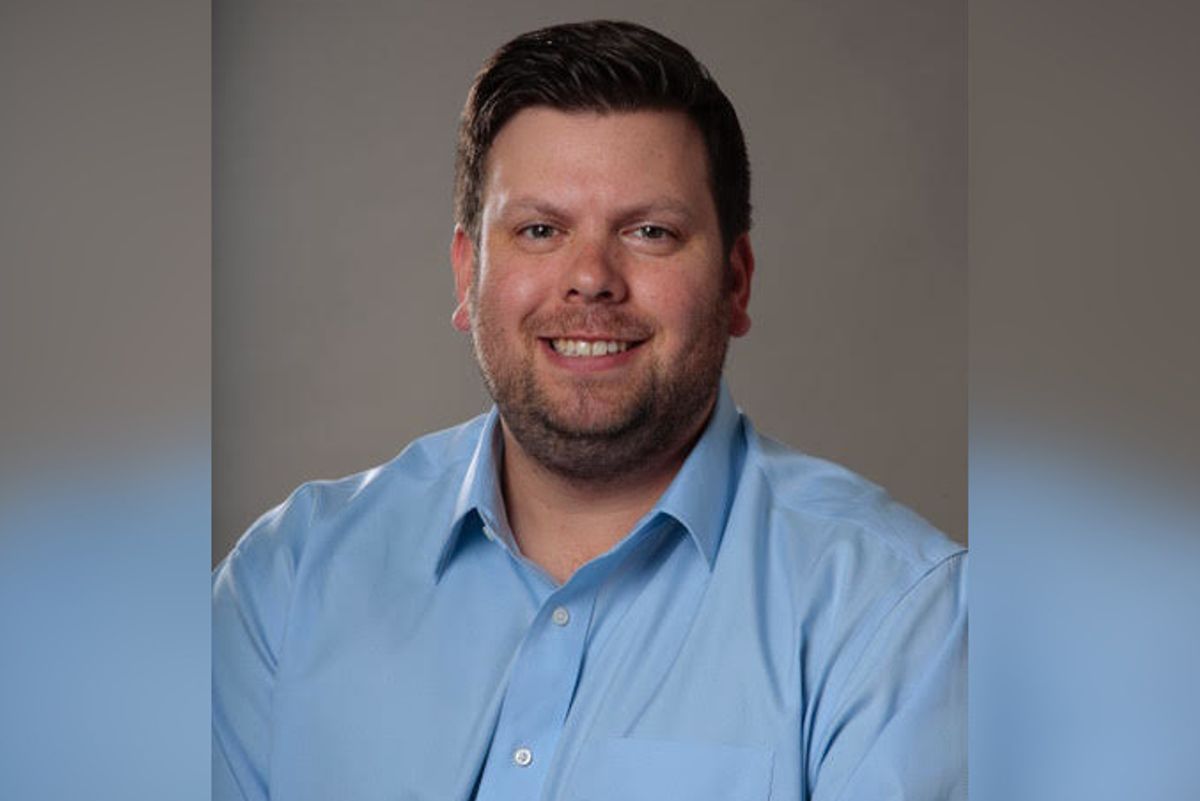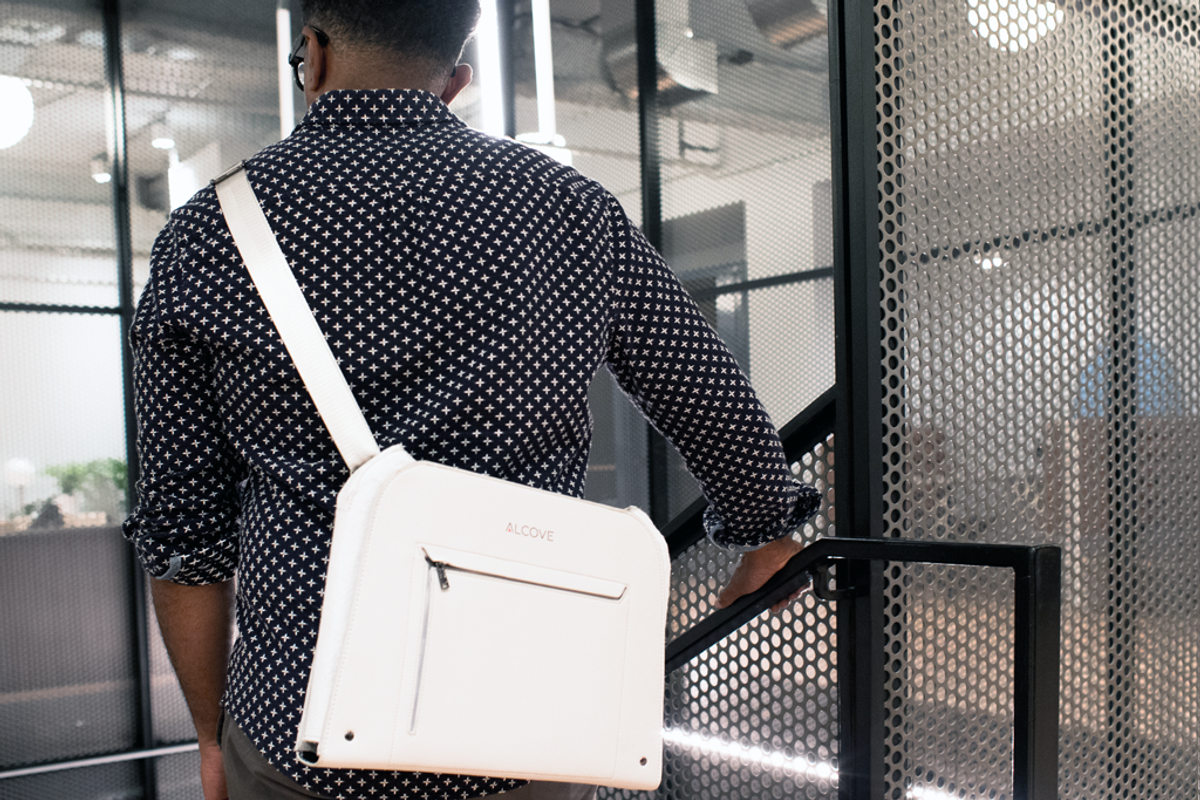It's holiday gift crunch time right about now, and whether you're scrambling for gifts or planning how you're going to treat yourself, Houston startups have innovative options for you.
All of the following gift ideas have a Houston tie, which makes for an extra special gift within a gift. While they are all available online, some might specify it's too late to ship by Christmas.
Here are eight ideas for gifts made by Houston startups.
A smart pillbox to make taking medicine cool
![]()
EllieGrid, the smart pillbox, makes it easier — and way cooler — to take your medicine. EllieGrid/Instagram
Never would you ever think to get a loved one a pillbox for Christmas — but EllieGrid is not your ordinary pillbox. The medical device has been completely reimagined by its Houston founders. The box, which is synced with a smartphone, will light up when it's time to take a dose. The lights indicate which compartment to pull from and how many pills to take. The app notifies you too, and, if you're gifting this to someone you want to stay on top of, you can actually opt in to receive the notifications and can be alerted if there's not compliance.
The box is available online for $149.
A personal, creative card that doubles as a work of art

Tellinga creates artistic and personal cards for every occasion. Courtesy of Tellinga
There's giving a card, then there's doing even more than that. Houston-based Tellinga isn't just a maker of greeting cards; it's in the business of storytelling, and customers can have personalized artworks delivered right to their mailboxes — a site for reclaiming, founder Alex Kurkowski says, from the dread of bills and marketing materials.
"I'm trying to tap back into the tangible, physical and real side of life," Kurkowski says.
The cards begin at $9.99 and are perfect for reaching that loved one who you don't get to spend time with this holiday season.
A portable workspace for the friend on the go
![Alcove]()
Alcove transforms from a laptop case to a private workspace in just a few moves. Courtesy of Alcove
It's a mobile world we're living in, but that does not mean you have to sacrifice comfort, design, and privacy. Houston-based Alcove has designed a solution in its laptop-carrier-turned-workspace. The item can convert into a productive work area in seconds — the wings pop out, the top lifts, and a kickstand holds the case upright while ergonomically holds up the laptop at a 40- to 45-degree angle. Founder Yared Akalou even consulted with an acoustic engineer to ensure the materials are optimized for users.
Alcove's items are available online in two colors in two sizes, starting at $49.
Skincare products from a Houston success story

Houston-founded Drunk Elephant had a great year this year with a huge exit to an international company. Photo via drunkelephant.com
A couple months ago, a Houston skincare company was acquired in an international $845 million deal. So, while Drunk Elephant is far from just a local startup, you can give the gift of beauty this holiday season that is also a nod to a Houston success story.
Houstonian Tiffany Masterson, founder and chief creative officer, started the company in Houston in 2012. The quality of products and playful branding attracted a broad range of demographics as the company experienced exponential growth.
"I started this business as an industry outsider, and from the beginning I did things a little differently," Masterson says in a news release. "To join with a powerhouse beauty company such as Shiseido that leads the industry in innovation and global excellence is a dream come true for me and for Drunk Elephant. We share similar values, most importantly an unwavering commitment to the consumer. I chose a partner who will let the brand continue to be itself, with the same formulations and the same team."
Online, Drunk Elephant sells a few options for holiday gifts. The set pictured is on sale for $62.
An anti-stink workout shirt for the fitness freak
![]()
The perfect anti-stink workout wear is designed right here in Houston. Courtesy of Accel Lifestyle
Any devote workout fanatic deserves an opportunity to have workout clothes that don't smell up their entire laundry basket. Houston-based Accel Lifestyle, founded by chemist Megan Eddings, has a solution. The clothing is made with an anti-stink material created patented by Eddings. The pieces are also sustainably and ethically made in the United States. For every shirt bought, the company also plants five trees as a way of giving back.
Men and women's tops are available online in different styles from $59 to $89.
A creative cocktail that fizzes
![]() What started as an idea to get her kids to drink more water has turned into a profitable party favor company. Courtesy of My Drink Bomb
What started as an idea to get her kids to drink more water has turned into a profitable party favor company. Courtesy of My Drink BombThe ability to make bar-quality cocktails at home has never been easier — or as fun — now that Houston-based My Drink Bomb is in business. The company, which has seen great success in the wedding favor industry, creates drink bombs that fizz like bath bombs that are packed with flavors and ingredients. All the user has to do is just add water and, if so inclined, their liquor of choice. Mocktails and kid-friendly options are available too.
The bombs are available online in two-packs for $12.50, but prices per bomb drop as you order larger packs.
A foolproof hangover cure

Cheers has a solution for after-alcohol recovery. Photo via Instagram/cheershealth
Hangovers are never fun and seem to just get worse as the years go by. Houston-based Cheers has created a suite of products that help you when you're in recovery mode. The key ingredient, Dihydromyricetin, a natural extract — like caffeine to coffee. This year, the company even has gift sets to choose from where you can even customize a message to your recipient.
The sets range from just $20 to $80, which includes all three products, and are available online.
Timeless table pieces for any occasion
![rigby]()
This isn't your grandmother's tableware company. Courtesy of Rigby
A good tableware set comes into your life once in a lifetime — and usually that occasion is from a wedding registry. But a Houston entrepreneur wants to change that way of thinking. Sara Kelly created her direct-to-consumer tableware brand called Rigby, which features handcrafted stoneware dishes, glassware, and a flatware line.
"With Rigby I want to encourage individuals in all life stages to feel at home with the present," says Kelly in a news release. "You shouldn't feel like you have to wait for a big lifetime event, like getting married or buying a house, to purchase tableware and other items that make your time at home more enjoyable."
The products, which are sold in sets, range from $19 to $280. They are available online, as are gift card options.







 What started as an idea to get her kids to drink more water has turned into a profitable party favor company. Courtesy of My Drink Bomb
What started as an idea to get her kids to drink more water has turned into a profitable party favor company. Courtesy of My Drink Bomb




 Alcove can even be its own shoulder bag when you're on the go.Courtesy of Alcove
Alcove can even be its own shoulder bag when you're on the go.Courtesy of Alcove
 Apple doubles down on Houston with new production facility, training centerPhoto courtesy Apple.
Apple doubles down on Houston with new production facility, training centerPhoto courtesy Apple.





